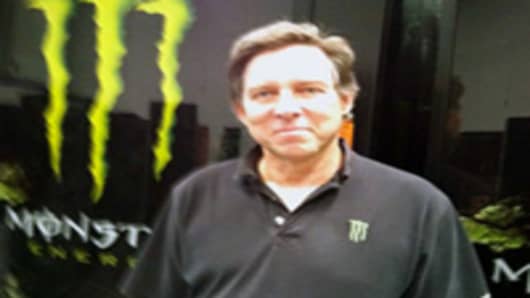Safari turned to vending machines when he tired of the wrecking business. “I just kept buying machines,” Safari said. “It was like putting a house together piece by piece.”
Vending is a classic “turnkey” investment that, if it’s working well, provides the owner a passive income stream while he’s off doing something else.
But Safari’s network of vending machines is the result of years of hard work, and his relative success is more an exception than the rule, Ajax said.
“If you have unrealistic expectations, if you think you’re going to buy a few machines and quit your day job, it’s not going to happen,” he said.
An investor who does the necessary due diligence stands a good chance at a decent, if supplemental, income by owning and servicing vending machines.
“People today have thousands in savings accounts that earn almost nothing,” Ajax said. “Your rate of return in the vending business is obviously dependent on how good your locations are, but with a little work and investment in equipment, good returns are possible.” Ajax has been in the business for 21 years and sells about 4,500 refurbished machines a year.
He recommends that newcomers start with one vending machine that dispenses soda, and to purchase used equipment. A new soda machine, for instance, will run between $3,500 and $4,000, while a refurbished one costs less than $700.
“A new machine won’t make more than a refurbished one, and you can buy five of them for the price of one,” he said.
The profit comes from the margin between what you pay for the items, and what you can sell them for. Products range from gumballs to lattes, but 95 percent of Ajax’ business is in traditional soda or snack machines.
Vending machines represent the least expensive type of turnkey operation, whose main source of attraction for investors is that an owner does not need to be on the premises for the business to operate. But it doesn’t mean that you can just check in periodically on your business.
“The phrase ‘turnkey’ is so overused in the franchise industry,” said franchise broker Joel Libava. “People have a false impression that all they have to do is turn the key. What they don’t realize is that every day they are the one who’s going to be turning the key.”
Entering the business also comes with a word of warning. “Like anywhere else, if it sounds too good to be true, it is,” says Libava.
In fact, Safari experienced the underside of the vending business before he had any success. The first five machines he purchased, from an ad in a local newspaper “were garbage,” he recalls. “They didn’t function correctly and the company wouldn’t take them back.”
His advice from the trenches: Find a reputable dealer and beware of vendors that only sell machines. “You need locations and you need routes,” he said. “The machines are nothing without them.”
Also, learn to make simple repairs.
Safari now has 140 machines, which he calls his “babies.”
"I’m surviving,” he said. “I know many people can’t say that.”
email: patricia.orsini@nbcuni.com


